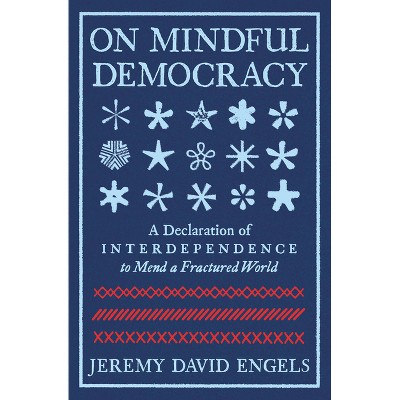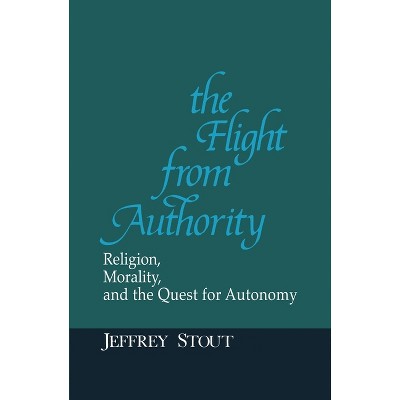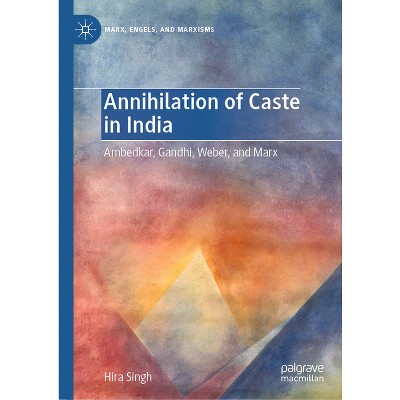Sponsored

The Ethics of Oneness - by Jeremy David Engels (Hardcover)
$115.00
In Stock
Eligible for registries and wish lists
Sponsored
About this item
Highlights
- We live in an era defined by a sense of separation, even in the midst of networked connectivity.
- About the Author: Jeremy David Engels is professor of communication arts and sciences and the Barry Director of the Honors Program in the College of the Liberal Arts at Pennsylvania State University.
- 272 Pages
- Religion + Beliefs, Philosophy
Description
About the Book
Includes bibliographical references (pages 211-251) and index.Book Synopsis
We live in an era defined by a sense of separation, even in the midst of networked connectivity. As cultural climates sour and divisive political structures spread, we are left wondering about our ties to each other. Consequently, there is no better time than now to reconsider ideas of unity. In The Ethics of Oneness, Jeremy David Engels reads the Bhagavad Gita alongside the works of American thinkers Ralph Waldo Emerson and Walt Whitman. Drawing on this rich combination of traditions, Engels presents the notion that individuals are fundamentally interconnected in their shared divinity. In other words, everything is one. If the lessons of oneness are taken to heart, particularly as they were expressed and celebrated by Whitman, and the ethical challenges of oneness considered seriously, Engels thinks it is possible to counter the pervasive and problematic American ideals of hierarchy, exclusion, violence, and domination.Review Quotes
"The Ethics of Oneness is a fascinating book about the early reception of yoga in the United states and its significance for contemporary democratic practice. Written by a scholar of rhetoric, the book is an extended analysis of the place of the Bhagavad Gita in the ethical thought of nineteenth-century US authors Ralph Waldo Emerson and Walt Whitman. . . . I welcome Engels's invitation to pay deeper attention to the cross-national influences coursing through the social practice of democracy in all its contexts."-- "American Religion"
"There is much to love about this book, particularly the fact that it has a lot to offer a number of audiences, both academic and non-academic.Its greatest contribution to academic and public discourse is its account of communication as yoga, a uniquely U.S. American form of yoga. It enriches our understanding of yoga and its history in the U.S., it enriches our understanding of Emerson's and Whitman's philosophies by offering a new mode of approach to them, and it develops two ethical worldviews that have remained somewhat underdeveloped.This, of course, merely scratches the surface. Overall, I think Engels's book is a masterclass in public-facing academic philosophy."-- "Philosophy East and West"
"Engels does a masterful job of showing us how these two great nineteenth-century philosophers--one a mystical poet, the other a prolific essayist--created new ways of looking at early American life from the point of view of Eastern spiritual traditions."-- "Quest"
"I learned something new and exciting on virtually every page of The Ethics of Oneness. Engels doesn't just reveal and analyze the India-Emerson-Whitman connections, he situates them where they matter the most: in everyday life at a time when the revelation of Oneness is desperately needed. At a time when diversity is celebrated by some and weaponized by others, apprehending the Unity within and beyond that diversity is an essential task for humanity. By demonstrating that Oneness is as American as it is Eastern--and profoundly democratic at that--this book makes a contribution more valuable than the currency on which E pluribus unum is engraved."--Philip Goldberg, author of American Veda and Spiritual Practice for Crazy Times
"The appeal to 'oneness' is regularly and dangerously mistaken for an appeal to absolute order, to strict unity, to lockstep cohesion. The Ethics of Oneness disabuses us of this confusion. Engels shows his readers how nineteenth-century-American thinkers responded to the fracturing of their political world and the tearing of the country's social fabric by developing a philosophy of oneness--fluid, transcendent, and spiritual--that stood against the forces of exclusion and domination which jeopardized modern life. This is a philosophy that is all but forgotten today, which is to say that Engels has written an essential book for our time. We stand in need of his reminder."--John Kaag, author of Hiking with Nietzsche and Sick Souls, Healthy Minds: How William James Can Save Your Life
About the Author
Jeremy David Engels is professor of communication arts and sciences and the Barry Director of the Honors Program in the College of the Liberal Arts at Pennsylvania State University. In 2011, Engels received the Karl R. Wallace Memorial Award, given by the National Communication Association. He is the author of many books, including The Art of Gratitude.Dimensions (Overall): 9.0 Inches (H) x 6.0 Inches (W) x .63 Inches (D)
Weight: 1.18 Pounds
Suggested Age: 22 Years and Up
Number of Pages: 272
Genre: Religion + Beliefs
Sub-Genre: Philosophy
Publisher: University of Chicago Press
Format: Hardcover
Author: Jeremy David Engels
Language: English
Street Date: April 19, 2021
TCIN: 1006097090
UPC: 9780226745978
Item Number (DPCI): 247-40-7192
Origin: Made in the USA or Imported
If the item details aren’t accurate or complete, we want to know about it.
Shipping details
Estimated ship dimensions: 0.63 inches length x 6 inches width x 9 inches height
Estimated ship weight: 1.18 pounds
We regret that this item cannot be shipped to PO Boxes.
This item cannot be shipped to the following locations: American Samoa (see also separate entry under AS), Guam (see also separate entry under GU), Northern Mariana Islands, Puerto Rico (see also separate entry under PR), United States Minor Outlying Islands, Virgin Islands, U.S., APO/FPO
Return details
This item can be returned to any Target store or Target.com.
This item must be returned within 90 days of the date it was purchased in store, shipped, delivered by a Shipt shopper, or made ready for pickup.
See the return policy for complete information.











